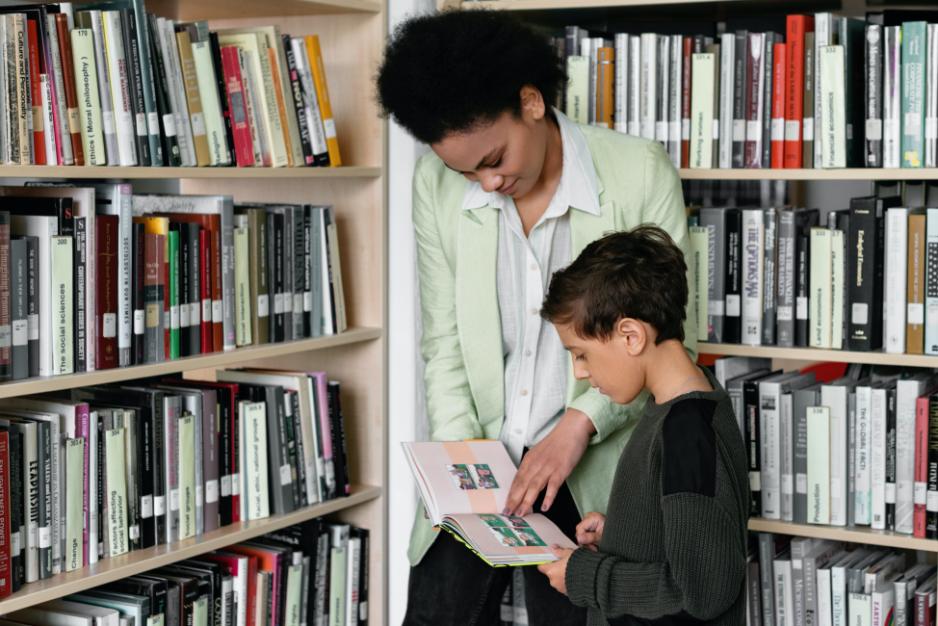Back to school is here! To help you and your family, we have compiled a list of resources to help make the school year successful. Stay tuned, as we will be updating this page all September long.
This collection of resources aims to support caregivers in transitioning their child to school by building routines for success and supporting positive communication with their child’s school team. See below for information and strategies for parents and caregivers of children at all stages in their school journey.
Attending your autistic child's special education meeting may feel overwhelming, but the right preparation makes all the difference. In this short video, parents will learn effective tips for preparing for a special education meeting with confidence.
Learn four essential tips to help you improve your communication and collaboration with your school. Whether you're a parent, guardian, or student, these practical strategies will empower you to build stronger relationships and work more effectively with your school community.

Starting school is a big step for every child and can bring both excitement and new challenges. Success at school depends on many skills,including participating in story and play times, and using fine and gross motor skills.Ready Set Learn! is a play-based activity book designed to help your child grow and practice these essential skills at home in a fun, engaging way.
-
Activity Book: Ready, Set, Learn! At-Home Activities for School Readiness
Also available in a version for children entering Kindergarten or currently in Kindergarten!
-
Activity Book: Ready, Set, Learn! At-Home Activities for Kindergarten
Help your child ease into the school year with confidence and calm. This interactive, parent-friendly workbook includes activities to boost emotional literacy, build self-awareness, and create a personalized toolkit of mental health strategies. Complete it online or print it out!
Get started on the activity book here:
- Back to School Mental Health Activity Book
- Back to School Mental Health Activity Book (with fillable sections)
Watch our Subject Matter Experts discuss simple routines that parents can implement at home to help students transition back to school with some planning and creativity from the comfort of your home and community.
Building a strong partnership with your child’s school team is key to a successful school year. Strengthen communication with your child’s educators using these practical tools and videos.
Watch these videos to learn effective communication approaches:
- Preparing for Your Child's Special Education Meeting: Parent Guide 5 important questions to ask your school team to start the school year off right and help your child succeed.
- 4 Tips for Collaborating with the School: Learn essential tips to help you improve your communication and collaboration with your school.
Scroll down to access tip sheets and templates that complement the videos to help you strengthen communication, ask the right questions, and support your child’s learning journey.
Questions about your child's educational rights and how to advocate for your child?
During this webinar, our panelists will provide valuable insights and practical tips to effectively navigate special education. We aim to empower parents and caregivers who are new to this journey by equipping them with the knowledge and tools necessary to advocate for their child's educational needs.
Quick Guides for Families and Educators
Looking for simple, accessible tips on navigating special education? Explore our collection of one-page resources below. Topics include understanding IEPs and IPRCs, preparing for meetings, what to expect from special education, and creating neuro-affirming classrooms.
Scroll down to view our collection of tips sheets.
For more detailed information on special education, click here.
High school can be overwhelming. But with the right tools, strategies, and support, this chapter can be one of growth, connection, and confidence. This collection of resources from AIDE Canada helps teens build independence, make informed decisions, and feel more prepared for what comes next.
Read This toolkit from AIDE Canada offers ideas and tips that may be useful for youth in high school.
You’ll find guidance on:
-
Getting the most out of high school
-
Staying organized and independent
-
Building friendships and social confidence
-
Navigating peer pressure and making safe, healthy choices
Hear River, an autistic and Indigenous young adult, who shares his journey through post-secondary education.
We recognize that anxiety is one of the most common mental health challenges autistic teens face. As a parent or caregiver, your steady support, encouragement, and presence can make a meaningful difference. The videos and resources below offer practical, compassionate strategies to help teens manage anxiety, build emotional resilience, and feel more confident navigating daily life.
See Autism Ontario’s School and Special Education for Autistic Students playlist on YouTube.
These videos, aim to support caregivers in transitioning their child to school by building routines for success and supporting positive communication with their child’s school team and navigating the special education school system.
- Functional Communication in School | 5-min Autism Insights (Coming Soon)
- Advocacy Strategies | 5-min Autism Insights (Coming Soon)
Translated one-pagers that explain key parts of Ontario’s special education process, including IPRCs, Individual Education Plans (IEPs), and working collaboratively with schools.
Tamil:
- Tips for Better School Communication and Collaboration
- IPRC - What It Is and Why It Matters
- The Individual Education Plan (IEP): A Plan for Student Success
- Five Steps to the IPRC
Spanish:



